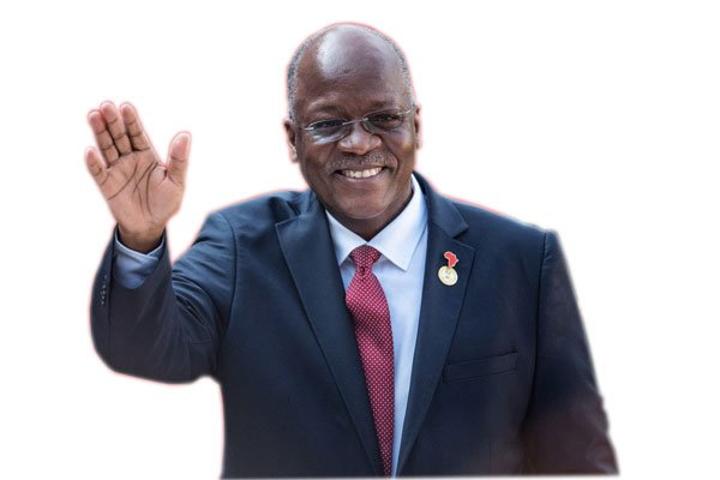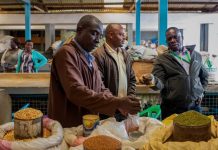Africa-Press – Uganda. There is no contention that President John Pombe Magufuli of Tanzania, who passed on Wednesday, was the product of the country’s First multi-party elections in 1995. Little was known of him out of his Chato District (then Biharamulo) on the south-west shores of Lake Victoria.
The constituency had to be split into Biharamulo East and Biharamulo West due to the local politicking and in order to accommodate him in the former.
Either by design or luck but likely the latter, Dr Magufuli caught the eyes of the incoming President Benjamin William Mkapa who came to power that year.
He was made deputy minister for Works, a ministry that was charged with rehabilitating the long network of the country’s roads after many years of neglect.
After only five years, he was elevated to a full minister for Works and that was when his fame began to rise outside the ministry. During the years the late Mkapa was in power, Magufuli soon joined the list of ‘paratroopers’ , a title for well-performing ministers in his cabinet. Soon he was baptized a ‘bulldozer’ not due to his highhandedness in moving things but for his association with the road making machines. The stepping down of Mr Mkapa did not go with his fortunes; he remained in Jakaya Kikwete’s cabinet (2005-2015) until he was elected president.
During the early 2000, Magufuli struck friendship with the leading opposition leader in Kenya Raila Odinga, supposedly due to some coincidence.
Both of them were Works ministers in their respective countries at a time the road projects under the East African Community (EAC) were initiated.
During the 2005 elections which lifted Mr Kikwete to power, succeeding Mkapa, Magufuli unsuccessfully vied for the highest office in the land. But finally he made it to the Dar-es Salaam State House in 2015 but in one of the fiercely contested presidency in Tanzania’s history.
It was the peak of the Opposition in the country with the main opposition party having fielded Edward Lowassa, the ex-premier who had defected from CCM.He entered into office not much known outside the country’s borders, including within the EAC region. It was evident he had a strong backing of Mkapa, Tanzania’s third president who died in July last year.
Political pundits said Mr Kikwete, who stepped down, had his preferred candidate in Bernard Membe, his Foreign minister during his 10-year reign. Like Mzee Mkapa, Magufuli entered into the highest position in the land seen as ‘Mr Clean’, a corruption-free leader expected to spearhead anti-graft war.
He immediately put his broom into gear in his crusade for cost-cutting measures in public service and fight against grand corruption. At some point, he won the support of the donor community which until 2016 supported as much as 40 per cent of the country’s annual budget.
Although the Tanzania economy was not doing badly when he took over, corruption was the major concern of both the citizens, the civil society and the donor community as can be exemplified by several mega corruption scandals such as the Escrow, which rocked the government only a year before.
Graft fight
Corruption was seen as a cancer that was to blame for the economic woes of the country and when he was finally declared the winner of the hotly contested presidential race, he did not waver that his tag to win confidence of wananchi was none other than through spirited fight against graft.
Mr Mkapa, the third phase president believed to be Dr Magufuli’s mentor to the highest office, apparently used the same anti-corruption tag in the run-up to his 1995 election. Only in a few weeks and later in his over five years administration, he had fired several top officials in the government and the parastatal sector suspected of having a hand in corruption.
Several were arraigned in court, others, simply dismissed while a few were restored after they were cleared.In 2016 when Dr Magufuli was elected the fifth Union president, Tanzania was ranked 117 out of 167 countries in Transparency International’s corruption perceptions index.
Work
Although the Tanzania economy was not doing badly when he took over, corruption was the major concern of both the citizens, the civil society and the donor community as can be exemplified by several mega corruption scandals such as the Escrow, which rocked the government only a year before.






